Tests done at the former Domtar wood treatment plant in northeast Edmonton have confirmed there are hazards to human health in the soil.

Between 2017 and 2018, the province tested the surface and sub-surface soil. More than 1,039 locations were tested and 1,457 specimens analyzed.
WATCH: Alberta Health official speaks about chemicals found at former Edmonton wood treatment site
The tests found 183 samples have “levels of contamination that exceed human health guidelines for dioxins and furans,” the province said in a news release Thursday. “Of these, 96 per cent are located in fenced-off areas.
“A number of other contaminants of concern for human health are identified in these reports,” the release continued.
“Remediation of those locations remains the responsibility of the companies previously ordered by Alberta Environment and Parks to clean up the site.”
Watch below: (From March 8, 2019) Remediation is promised but questions remain unanswered when it comes to the site of the former Domtar plant in northeast Edmonton. Vinesh Pratap reports.

Dumdubari Bera and his wife Daughter Bera bought a home next to the site last June.
“Two weeks after we moved in, we noticed they started putting the fence over here,” he said. “We didn’t know before we bought the house.
“The government came to see us. They say we can’t open the window, we cannot go outside, we cannot let the kids touch the sand on the ground. We’re basically living like a prison. We just go in through the garage, go inside the car, go out.
“I want my kids out of here, that’s all I want,” Dumdubari added. “I want my family to be safe.”
GALLERY: Before and after soil testing images of the Beras’ yard near the old Domtar site in northeast Edmonton, Alta.
The Beras were notified about the soil test results by the province Thursday morning.
“I’m devastated and frightened and scared and teary,” Daughter said. “I don’t know what to do. I’m scared for my kids.
“No parent ever wants their little kids to live with stuff like that. But I’m living with stuff like that with my kids because nobody told us. We were never aware that stuff like this was here.”

Get weekly health news
READ MORE: Developer takes Alberta to appeal board over former Edmonton wood treatment plant
Watch below: Residents of a neighbourhood are reacting after the Alberta government said tests done at the former Domtar wood treatment plant in northeast Edmonton have confirmed there are hazards to human health in the soil. Sarah Kraus reports.

Cherokee Canada had already started turning the site into a new residential community but legal proceedings halted the project, located just north of Yellowhead Trail near 44 Street, backing onto the Homesteader neighbourhood.
Last year, Alberta Environment said third-party testing at the site found chemicals dangerous to human health. It imposed five enforcement orders on Cherokee, requiring the company to remediate any contamination.
“The core aspect of these orders is to basically remove potentially large amounts of soil from these sites,” Gilbert Van Nes, general counsel for the Environmental Appeals Board, said in August 2018. “Domtar and Cherokee disagree that this is necessary.”
Cherokee appealed the decision, arguing it had already undertaken remediation efforts (as had Domtar), including isolating and protecting contaminated soil from exposure.
READ MORE: Residents notified after chemicals found in soil at old northeast Edmonton wood treatment facility
At the same time, protective measures were put in place, like fencing and dust control, to protect nearby residents.
The province said Thursday those protective measures will continue and remediation of concerning areas will start when ground conditions improve in the spring. If the company does not complete the remediation efforts as soon as possible, the province will do it and bill the company for the work through environmental legislation.
WATCH BELOW: The Alberta government says tests done at the former Domtar wood treatment plant in northeast Edmonton have confirmed there are hazards to human health in the soil. Vinesh Pratap has the details.

“Alberta Health Services continues to work closely with the Alberta government on efforts to protect the public,” said Dr. Chris Sikora, medical officer of health for AHS’ Edmonton Zone.
“We appreciate that this has been a stressful time for residents in the area and we thank them for their patience and understanding while we continue to gather further information about the health risks.”
Alberta Health did a “preliminary comparison” of the rates of cancer, miscarriages and birth defects in the surrounding neighbourhoods. The province said there were increased rates of three types of cancer in this area compared to other parts of Alberta.
Among people who had lived in the area for 10 or more years, there were:
- 34 cases of breast cancer in women (16 to 31 cases would have been expected)
- 14 cases of endometrial cancer in women (three to nine cases would have been expected)
- 22 cases of lung cancer in men (six to 14 cases would have been expected)
- No differences in any childhood cancers were found compared with other parts of the province
“This data on its own does not indicate why there are higher rates for these three types of cancer in the area,” the province stressed. “Many factors could contribute to an increased risk of cancer, including but not limited to medical history, medication use and tobacco use.
“Alberta Health will, therefore, be working immediately with federal experts to conduct a field epidemiology investigation to try and identify what population health factors might have contributed to higher rates of these three cancers.”
READ MORE: Alberta wildfires will leave toxic legacy, experts warn
In a statement emailed to Global News on Thursday, Cherokee Canada expressed strong concerns with the province’s findings.
“Without describing its methodology, the publication provides unsubstantiated information to community members about potential health risks.”
Cherokee said it believes the Environmental Appeals Board’s independent report “will once and for all put forward a proper, science-based process to complete the remediation of this site to a safe residential standard and put to rest the issue of health risk impact in this community.”
The managing director of Cherokee Canada said he’s “puzzled” by the province’s course of action.
“The release of this unsubstantiated information appears to undermine a legal process and circumvent the board’s jurisdiction as an independent expert adjudicator of environmental disputes as conferred by the legislature,” John Dill said.
“The ministry’s approach is most regrettable, given our long-standing, positive reputation of rehabilitating brownfield sites,” Dill added. “This continued misrepresentation of the safety of the community, and now the undermining of a judicial process, is causing anxiety in the community and harm to local residents and businesses.”
Scroll down to read Cherokee’s full statement.
The soil-sampling report from the former wood-processing site will likely be released later in March.
Neighbours should still avoid the fenced-off areas.
Residents were informed directly Thursday morning.
“We know this information may be distressing for residents,” said Chief Medical Officer of Health Dr. Deena Hinshaw. “That’s why we’ve worked hard to communicate with the residents directly and we’ll continue to do so in the days ahead with community meetings so residents can have their questions answered.”
Two open houses will take place at the Claireview Recreation Centre in multi-purpose room #2. The first will be held March 9 from 5-8 p.m. The second will be March 14 from 5:30 to 8:30 p.m.
For more information on the results, click here.
Cherokee Canada – Statement March 7, 2019 by Emily Mertz on Scribd



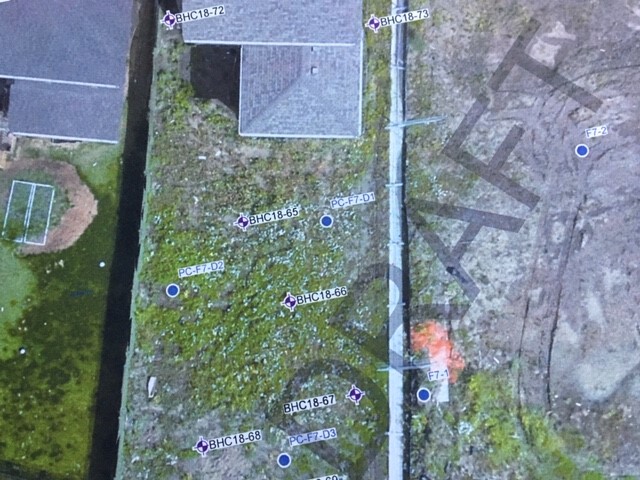

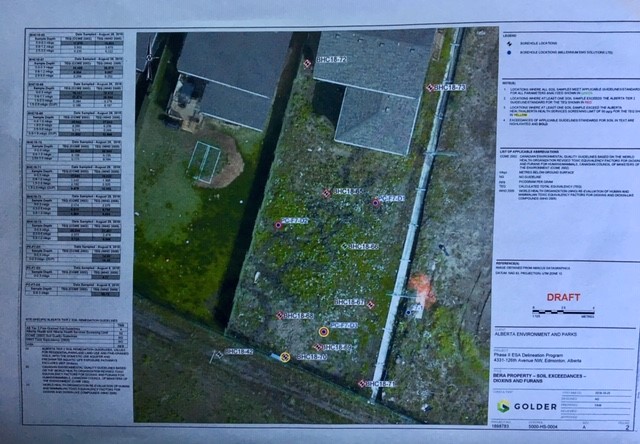

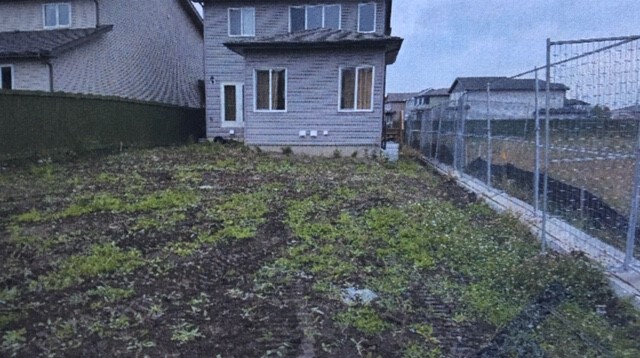

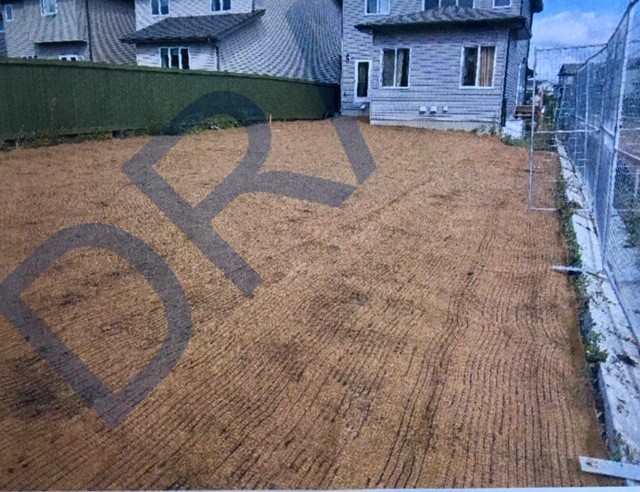

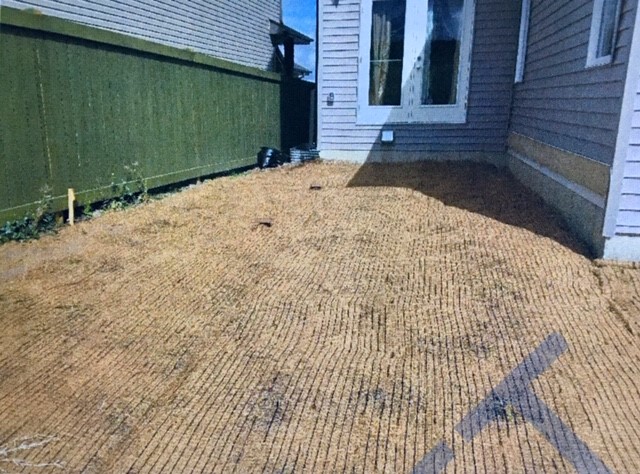



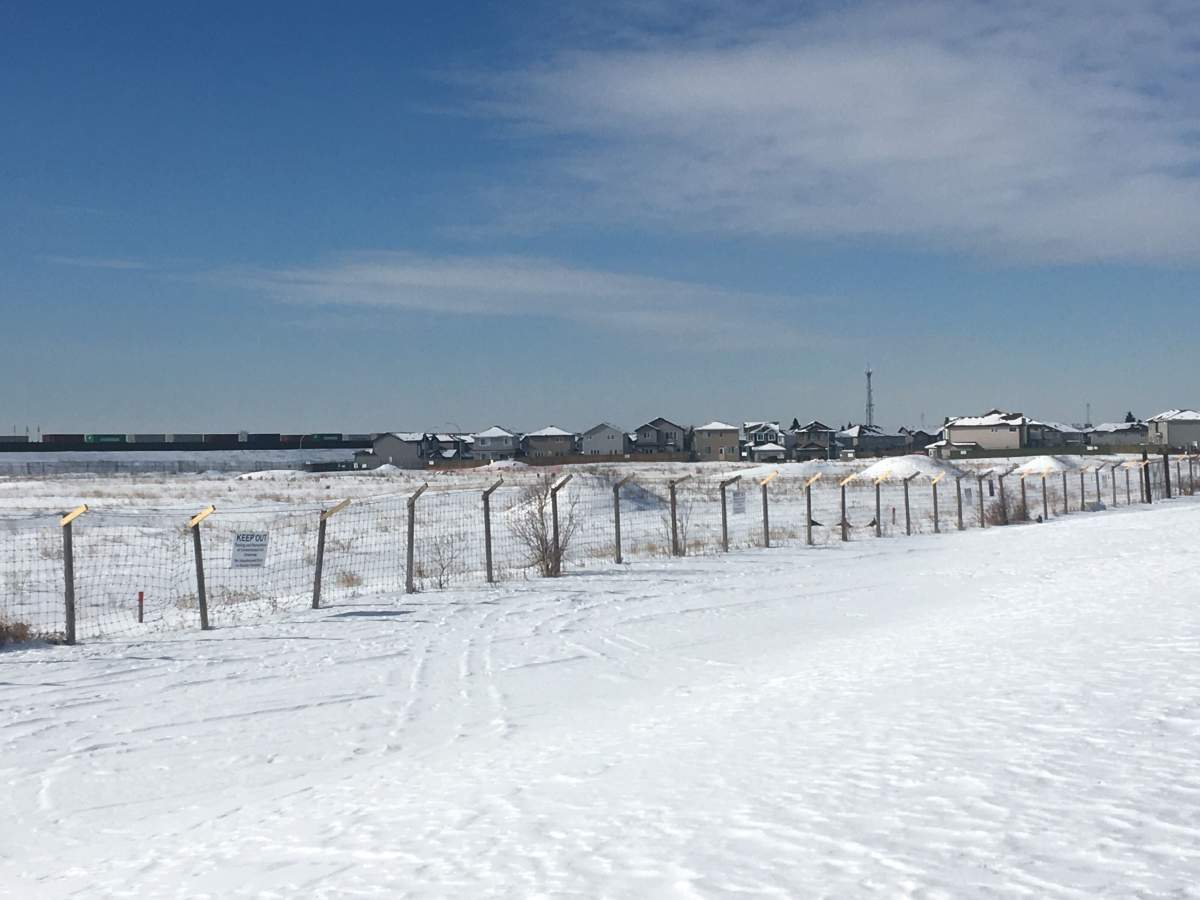




Comments